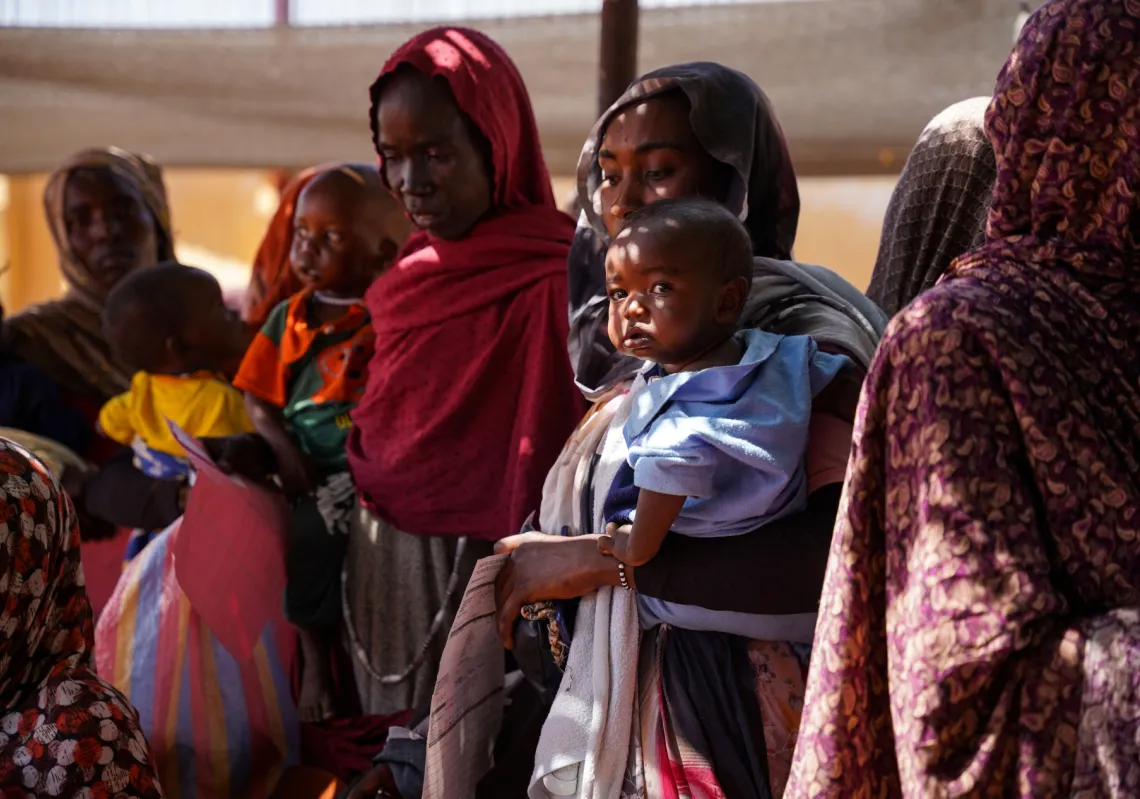Dr. Anne-Marie Slaughter runs what is widely regarded as Washington’s most influential think tank. As the Director of Policy Planning at the United States Department of State, she is the most recent in a long line of American diplomats and foreign policy intellectuals who have advised U.S. Secretaries of State dating back to 1947, when the office was established. Before entering public service, Dr. Slaughter was the Dean of the Woodrow Wilson School of Public and International Affairs at the University of Princeton and a professor of international law at the Harvard Law School. She is the author of several books on global affairs, including The Idea that Is America: Keeping Faith with Our Values in a Dangerous World.
At the twilight of President Barack Obama’s eventful first year in office, Dr. Slaughter talked to The Majalla about the administration’s unfinished business in the Middle East, growing U.S. tensions with China, and the challenges to statecraft in a year of mid-term elections.
The Majalla: The Middle East is a challenge for peacemakers even in the best of times. What is the most the Obama administration can expect to achieve in 2010 given the difficulties it faces at home?
I think we can certainly hope for the beginning of serious negotiations between Israel and the Palestinians and possibly other parties who would be essential to a broader settlement between those two sides. And when I say serious I mean negotiations aimed at a final resolution of issues rather than just getting the process going again.
Q: What would compel Israel to return to the negotiating table? It has a stable economy, its security wall has greatly reduced the number of terrorist attacks on its citizens, and the Palestinian condition is as remote to the average Israeli as it has ever been. Where will the pressure come from?
I think one of the lessons of the administration’s first year is that engagement with individual countries within the Middle East process has to be about clarifying incentives and consequences so that it isn’t about putting direct pressure on a participant or to force it to take a position, so much as it is to make very clear how difficult issues are interconnected. We believe that when those perspectives are properly presented and understood there are strong interests on all sides to reach a final settlement.
Q: Does that also apply to the Palestinians? They had good reason to hope Washington would apply enough pressure on Israel to ensure a freeze on West Bank settlements and it didn’t happen. To what extent did Israel’s refusal to freeze settlement expansion damage U.S. credibility in the region?
The previous administration engaged these issues sporadically, off and on. The U.S. was sometimes not there at all, or it was sometimes there, though it was not clear how long it were going to be around. This new administration was clearly committed to engagement, though even the president himself has said our expectations were higher than they should have been about how easy this was going to be. I think we found ourselves in a position where everyone was waiting to see what we could extract or impose when in the end it is about mediating or directly engaging in ways that make clear what the choices are and what our own interests are. But it’s not going to be about us setting terms.
Q: So you think the U.S. is still regarded as an honest broker in the Middle East?
I think we are, though in the sense that I don’t think there is anyone else who is better placed then us to play that role.
Q: There has been discussion in some quarters about how the Europeans should fill any vacuum in the region created by the Americans.
We have always encouraged a sharing of responsibility. It is impossible to imagine a long-term stable peace between Israel and Palestine that did not allow for a large European economic role. Similarly, it is unlikely, given the EU’s growing political strength and the historic ties it has to different countries in the region to imagine the Europeans are going to play an economic role and not have a political one. So I don’t see a larger EU role as somehow threatening, or as a wedge that would ease out the U.S. If that were to happen, you’d be asking the same questions about EU credibility vis-à-vis Israel.
Q: Let’s talk about America’s Arab allies and what it would take to bring them back to the table, beginning with Saudi Arabia.
I think it’s important to recognize is that any new administration has to build its own relationships, particularly in the Middle East. It takes time to build up these links and to get a sense of each party’s overall strategies and priorities. Obviously we engage with Saudi Arabia in many different contexts, whether it is with Afghanistan or Pakistan or Iran, or with Israel, so there are a lot of dimensions to that relationship. I think we’ve been very supportive of the Arab Peace Initiative [of 2002] and that’s important but there is more to do there. President Obama’s watchword is that all countries have to take responsibility and nobody can wait until the end of the process to deliver. In other words, it has to be collective process where all parties with an interest in the process are giving bit by bit in a broader, confidence-building set of negotiations. So we’ve been in support of the Arab Peace Initiative but there are things that obviously we hope Saudi Arabia will do in response to what Israel will do rather than wait for a final settlement.
Q: The Saudis’ might say it was not just the Arab Peace Initiative they fought for. There was the Riyadh Agreement in 2007, when King Abdullah waged his credibility brokering a deal between Hamas and Fatah, in which Hamas effectively recognized Israel by giving Fatah the mandate to negotiate for peace. Both Israel and Washington ignored this, so why should they go to bat for you now?
I would say that in this world and on these issues, “effectively” is not good enough. We’ve made it very clear to Hamas that it must accept the Quartet’s principals. We want Saudi Arabia engaged, which is a good thing. But there are very clear red lines in terms of our ability to engage Hamas.
Q: A cultural anthropologist might say that in the Middle East, a de facto position can evolve into a de jure one if patiently cultivated.
In the first place, there are plenty of people on all sides who get the culture and we have very experienced negotiators like Senator George Mitchell in the region. I think it does matter that even though this process has been going on for decade, when a new administration, a new team, comes in, it takes a while to develop personal relations in addition to longer-term diplomatic relations. What might be possible at the end of an administration in terms of accepting different moves and actions may be harder at the beginning of the administration.
Q: What about Egypt? Are you satisfied with the role Cairo is playing?
Egypt has been very actively engaged on the Gaza side and with Hamas and Fatah. I think the Egyptian perception of the need for urgent action has increased, particularly regarding their efforts to broker a solution. The Egyptians are working hard. They have not been successful in their efforts to broker an agreement, both between Hamas and Fatah but also with the Israelis on prisoner exchanges. They’ve worked hard and persistently so.
Q: Let’s depart from the Middle East to focus on America’s relations with China, which is no longer a parochial concern but a global one. Sino-U.S. ties have been taking a beating lately, due to the row between Google and Beijing over Web censorship, U.S. arms sales to Taiwan, and President Obama’s scheduled meeting with the Dalai Lama. How bad can this get?
The issues of the Dalai Lama and arms sales are always very difficult. We’ve made clear that even though we see China as an important partner in a lot of areas and a very important emerging power with whom we want to cooperate, that doesn’t mean we are always going to agree on everything and it doesn’t mean we’ll always tailor our policies to maintain harmony with China all the time. These are issues that come up regularly, with every administration. So it’s a rocky set of issues but at the same time my office was [in Beijing] all last week making arrangement for the next Strategic Economic Dialogue [between the U.S. and China.]
Even close allies have their disagreements. Just think of our relations with Europe, where we’re constantly having crises. When close allies have problems, that’s what make the news. China is a country with which we have partnerships but we also diverge from each other at times.
Q: The press is playing this up as if there has been a qualitative change in the relationship, as if China is somehow shifting the rules as it emerges into a global power. Do you think that’s overdone?
I do. I think that the global financial crisis has effected the perception and self-perception of many nations and China has come out of the crisis strongly, although I don’t think the end of that story is yet written. The U.S. obviously has a lot of work to do and that has given many individual Chinese a different perspective on their own rise. But again, over the longer term the Chinese government is well aware of how far it still has to go in development because it needs continued growth to bring another hundred million or so people out of poverty. And as the president made clear in his State of the Union address, the United States is well aware of what we have to do. So I don’t think the fundamentals have changed.
Q: And China’s threat to sanction major U.S. firms that sell arms to Taiwan?
For the Chinese to start sanctioning companies on whom their export markets ultimately depend is probably not very wise over the long term.
Q: A devil’s advocate might say it is not wise to antagonize your banker, which is the role China plays to an indebted U.S. government.
I think the global economy is very interconnected and it is hard to see these relationships in one-way terms.
Q: What are your personal objectives for 2010?
To fulfill the secretary’s desire to see us build up our capability in a whole range of areas, but above all to strengthen development capacity and to connect it to what we do on the diplomatic side so that development and diplomacy are equal pillars of the civilian side of our foreign policy.
Q: It’s an election year in America. To what extent do the demands of domestic politics compromise your ability to achieve your goals abroad?
The administration has made it clear that it does not want a peace process for the sake of process. It wants negotiations towards peace. At the same time, it understands that even if you get those negotiations going and they are completely serious, they are not going to deliver a comprehensive settlement overnight. We’re talking months and maybe years. I don’t actually think there is any thought they’re going to deliver a peace settlement before the mid-term elections [in November].
The flip side is I don’t think this is an election that will be determined by foreign policy issues. There are so many domestic priorities, the economy being priority no. 1, but also jobs and health care, and financial regulation, that will crowd out attention to foreign affairs. The State of the Union was a good guide. The president did not mention foreign policy for almost an hour, and in my lifetime that’s a first.
Interview conducted by Stephen Glain







